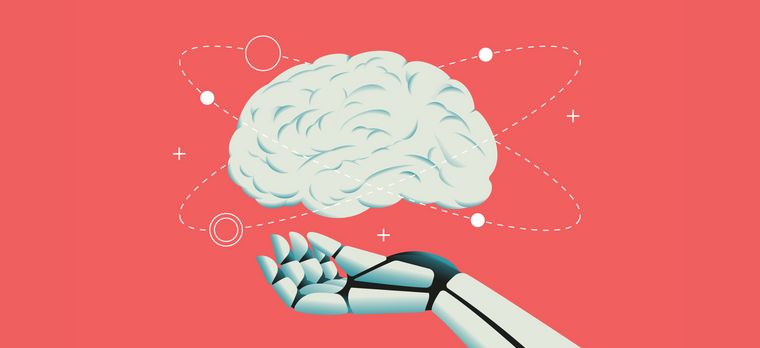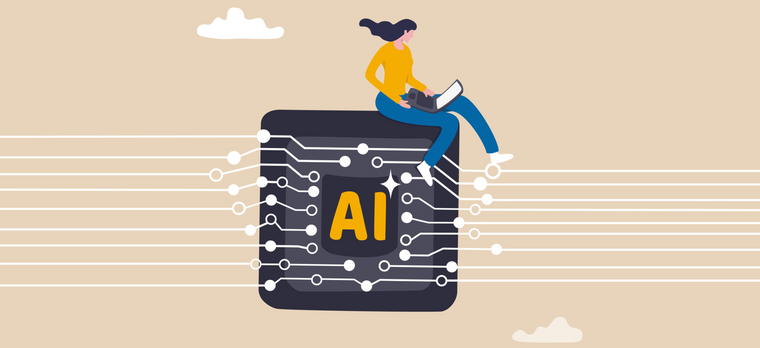How to survive AI… the skills we need to stay relevant: Part 2
In the first part of this article, we established that we now face a genuinely new paradigm for insight. But just how will the arrival of generative AI change the overall business structure within which insight operates.

Article series
How to Survive AI … the skills we need to stay relevant
- How to survive AI… the skills we need to stay relevant: Part 1
- How to survive AI… the skills we need to stay relevant: Part 2
- How to survive AI… the skills we need to stay relevant: Part 3
- How to survive AI... The skills necessary to stay relevant: Presentation
Three key business pillars for growth
The organic growth engine at the heart of any business is built around the three pillars of strategy, insight and marketing:
The ability to apply high-level strategic thinking to identify the most appropriate business pathways and opportunities to follow
The capability to identify critical customer insights that help drive product and service innovation
The marketing and branding skills required to develop the relationship with the consumer, promoting and communicating offers in a competitive marketplace.
These work in combination to address the key ‘where to play’ and ‘how to win’ questions.
In each of these three pillars, the key to producing outstanding growth outcomes will be the ability to identify the precise skills that we humans will most need to cultivate to:
optimise the value we get from AI (‘prompt engineering’) and
add a layer of creativity or critical thinking that will be the key point of differentiation.
We must pinpoint where AI is now likely to be doing most of the heavy lifting and where it will be tricky for it to serve as a substitute for us humans. While there are increasingly those areas where AI will do most of the work, substituting human capability, we also need to identify and develop those areas where only human creativity will suffice.
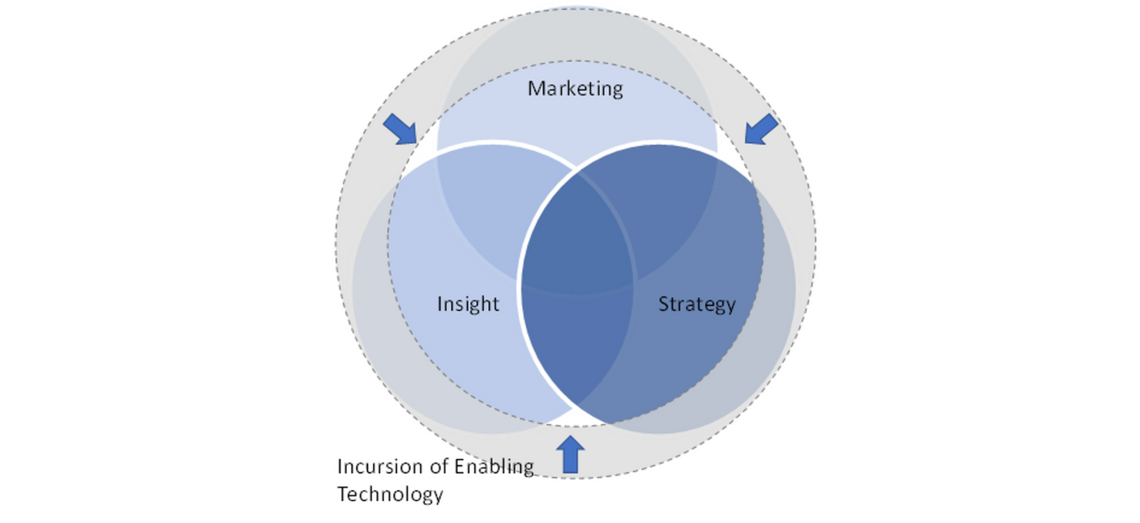
Transformation is not new; across the strategy, insight and marketing spheres, technology has, over the years, fundamentally altered how we work, but what we face now is a quantum change. We already know that the amount of technology-enabled data has grown exponentially, and technology has freed us from many of the previously intricate and labour-intensive processes. We now carry around in our laptops the processing power that 40 years ago would have been housed in its own building. We can cite many examples, including:
Robot interviewers undertaking some simple interviewing assignments (with AI champing at the bit to take on ever more challenging interviewing roles).
Technology delivering many asynchronistic sources of insight has transformed our ability to analyse vast swathes of open-ended content, including social media data.
The arrival of technology-enabled large-scale mass marketing experimentation via Google Ads and Facebook advertising and other platforms able to test product and service ideas at the drop of a hat.
The arrival of very professional and powerful (DIY) platforms is/will transform(ing) the relationship between strategy, insight and marketing. This has all led to a democratisation of knowledge - with over one-half of all research now being conducted internally by clients, much of which is at a point of use by strategists and marketers.
We have seen many of the processes and functions hitherto undertaken by humans moved into the hands of the technology, but we are likely to see this enabling role for technology evolve into substitution. One marketing agency pitted Open-AI-powered copywriting software against a team of copywriters to write digital content for clients (Adweek ‘ChatGPT Upends Advertising & Marketing Jobs’). The AI system, paired with a human editor, was “magnitudes more efficient”. There was an 87% reduction in production time. As these systems embed themselves in businesses, the impact will lead to changes in skills profiles (in this case, from content creator to content editor) as well as headcount. Productivity will rise with our ability to now do more with less.
The amount of data our businesses now have access to is mind-boggling. By 2025, there will be 175 zettabytes of data in the global data sphere, up from 44 zettabytes at the beginning of the decade (Source: Seagate & World Economic Forum). This growth of data will not slow; we now have access to so many diverse sources of information that probably only AI has the power to truly extract maximum utility from it.
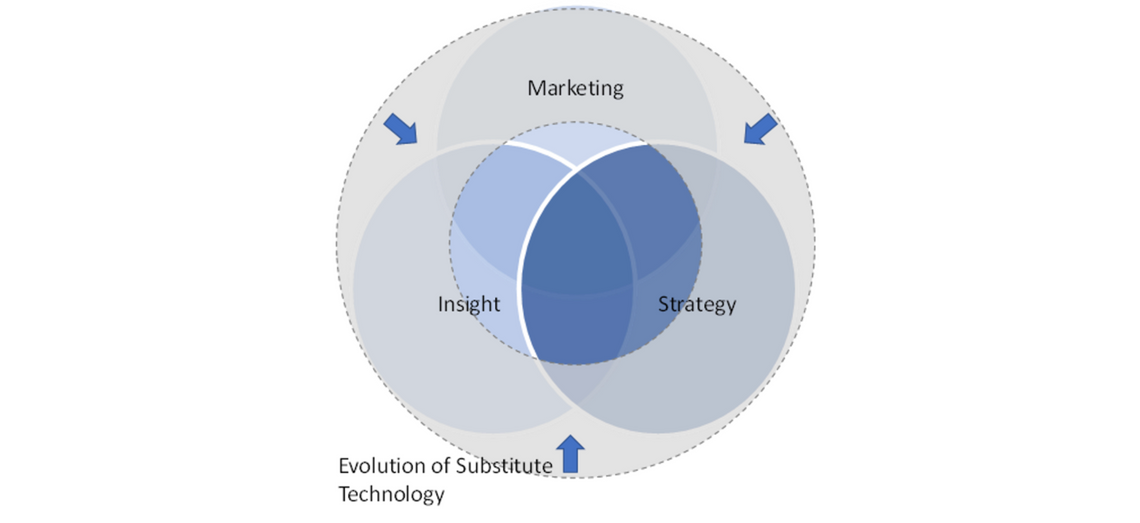
Advances in AI will be the great leveller, and in what will increasingly become a highly competitive market, agencies will find it difficult to differentiate themselves amidst so much commoditisation. We are already seeing the trend towards agencies now moving away from just focusing on the ‘customer’ towards understanding the overall ‘human experience’. Importantly some insight agencies are now rebranding around this broader human perspective as we find the insight skill set now embracing cultural analysis, business strategy, social psychology and much more. To deliver this holistic view, the hunt is now on for polymaths - renaissance men and women - who see what others cannot see and think what no one else has ever thought. In other words, those who can bring that extra dimension of empathetic insight to the human condition and creative flair – characteristics that keep them ahead of AI.
The convergence of the insight, marketing and strategy skill sets
If we reflect on our analysis of the roles played by humans and technology in the evolution of each of the three core business pillars, we begin to see some of what we might call ‘power skills’. We are defining power skills as being the ones that most differentiate us, humans, from what AI can currently deliver.
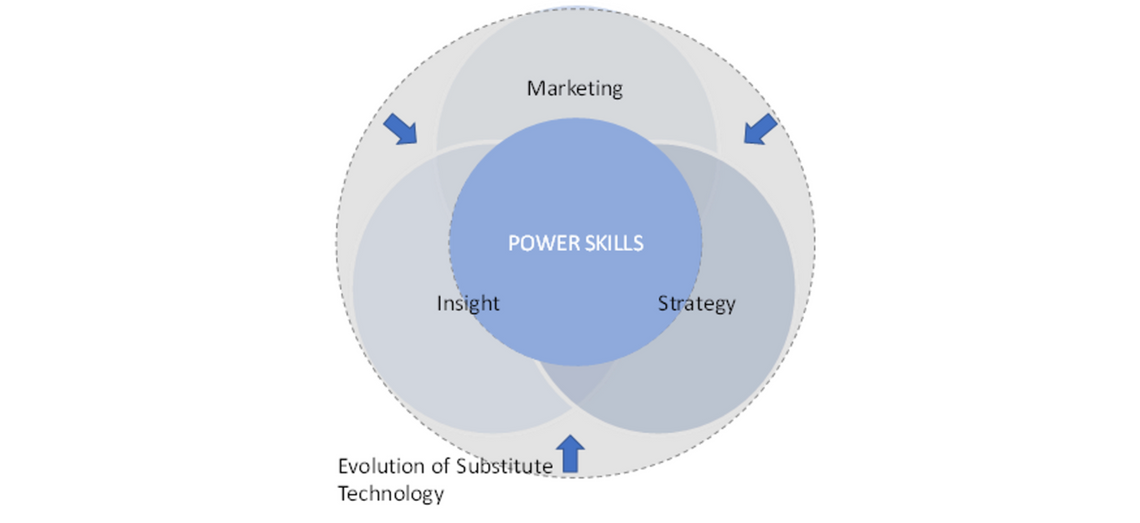
And another reflection on our analysis of the skill needs for growth in the AI era is the way that strategy, insight and marketing themselves are converging. There has, over the last decade or more, been a convergence of the defining human-centric features of each of the sectors. Each has, of course, its own specialist technical skills that have taken it off in different directions. But when it comes to those human-centric skills that fundamentally define each sector, there is now much common ground. We would argue that if we were to start again, we would have a composite strategy, insight and marketing function drawing on the power skills that allow us to work most productively with generative AI.
It is these power skills that will manifest themselves across the worlds of strategy, insight, and marketing that seem to be emerging as ones most likely to differentiate and distinguish us from what transformative AI solutions can provide.
Reimagining the business power skills needed for growth
In summary, our human ‘super-power’ is the ability to comprehend - and importantly, empathise with - the complexity of the human condition and experience, conveying it in a way that businesses can understand and action. In turn, this ‘super-power’ will draw upon these 7 ‘Power Skills’.
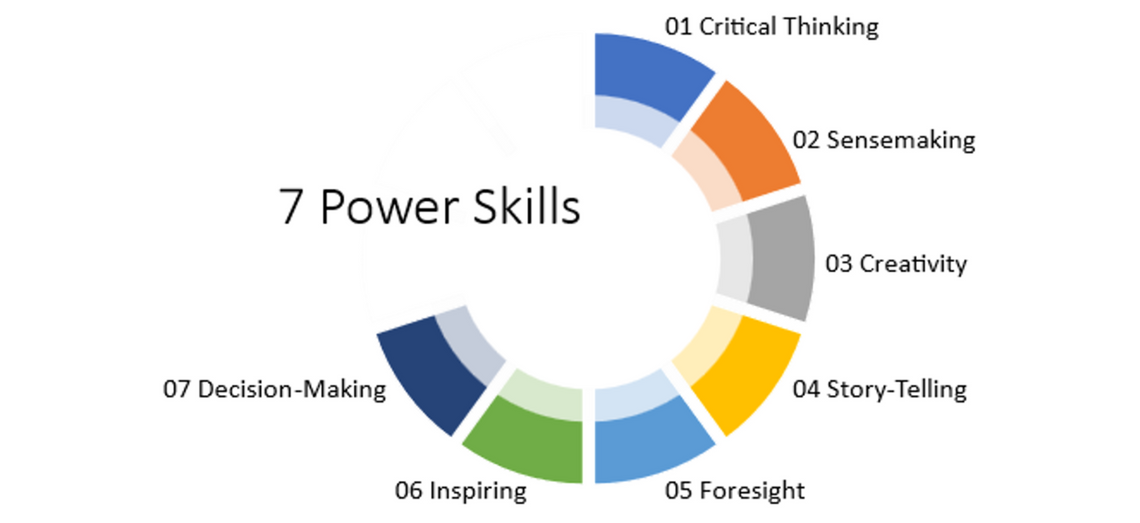
These are the skills that we believe are most important to dial up because they are the ones that allow us to work most productively alongside generative AI. Maybe one day, even this reboot will be overrun by the power of AI, but at the moment, arguably, these are the areas we should be focusing on in working alongside generative AI to build growth.
In the final part of the article, we do a deep dive into each of these powers skills and discuss how best to acquire these.
David Smith
Director at DVL Smith LtdDavid Smith is a Director of DVL Smith. He is also a Professor at the University of Hertfordshire Business School. He holds a PhD in Organisational Psychology from the University of London and is a Graduate Member of the British Psychological Society.
He is a former Vice President of ESOMAR and also a former Chairman of the UK Market Research Society (MRS).
He is a Fellow of the Market Research Society, a Fellow of the Chartered Institute of Marketing and also a Fellow of the Institute of Consulting. David is a Certified Management Consultant.
Adam Riley
Founding Director at Decision ArchitectsAdam Riley founded insight consultancy Decision Architecture Limited in 2006. His 25-year-plus career has spanned market research agencies, client-side roles and management consultancy. Adam joined TN-AGB in the early nineties, before moving to RSL in its embryonic international research team.
After an MBA at The London Business School, he joined Samsung in South Korea, as a Global Marketing Strategist, before moving back to London and becoming a senior member of the marketing strategy practice of Monitor Company (now part of Deloitte).
Article series
How to Survive AI … the skills we need to stay relevant
- How to survive AI… the skills we need to stay relevant: Part 1
- How to survive AI… the skills we need to stay relevant: Part 2
- How to survive AI… the skills we need to stay relevant: Part 3
- How to survive AI... The skills necessary to stay relevant: Presentation
